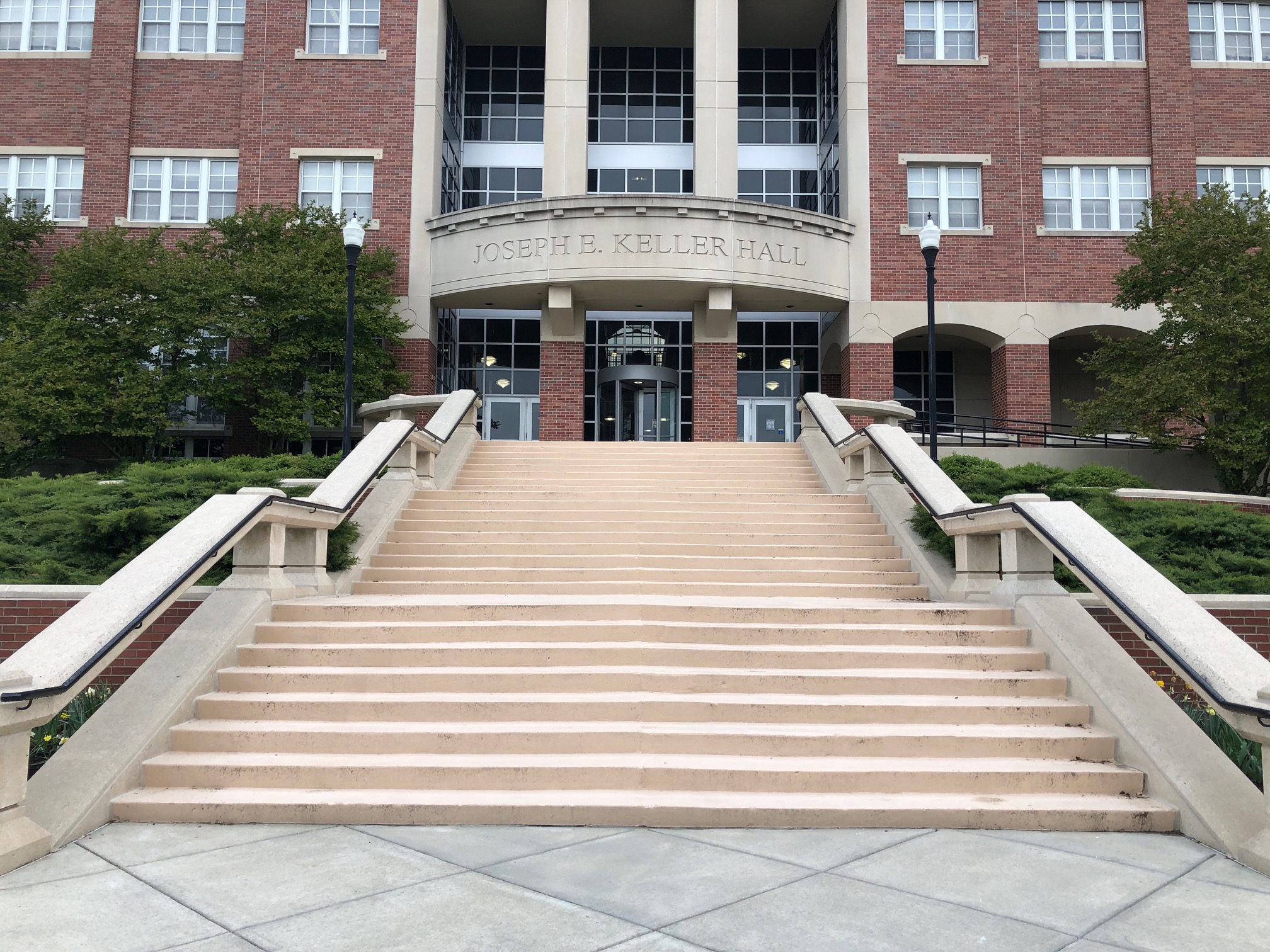Dayton Docket

UD Law Students Help Dayton Police Reform Effort
Lauren Devine had done her share of legal research in the last few years, but this task felt different.
Instead of a hypothetical situation with only a grade riding on it, Devine’s research was informing a discussion with real-world policy implications.
“I was excited and grateful for the opportunity,” Devine says. “This felt like a way I could contribute and have an impact in the Dayton community.”
Devine along with fellow University of Dayton School of Law students Carly Suierveld, Devin Bartlett, Daniel Stoecklein, Dave Mooring, Deztany Johnson and Scott Bellavia took part in the city of Dayton’s Police Reform Working Groups.
The five groups were formed by the Dayton City Commission in the wake of the murder of George Floyd. The groups dealt with different issues around policing in the community.
“When it came to reform, it felt like Dayton was leading the charge across the country,” says Dayton Law Director Barbara Doseck. “But to do it right and well was going to require a lot of resources and time.”
One resource the city used was the University of Dayton School of Law.
Doseck, who is a 2005 graduate of UDSL, reached out to Professor Thaddeus Hoffmeister, who runs the law school’s Criminal Law Clinic, to find students who would be able to help.
“Law students are a great resource because they’re skilled, they can do research and they know the basics of the law,” Hoffmeister says. “On top of those skills, they also bring a unique voice to what reforms should occur.”
Devine did research for the Use of Force group. One of her big contributions was looking into whether pointing a firearm at a person is identified as a use of force that’s reportable by officers. By looking at case law and the policies of other police departments, Devine along with Bartlett, who was also in the group, found precedent that it could be considered a use of force.
“It was interesting to perform this research and see how things get fleshed out,” Devine says. “I learned a lot. I got to see the process of how big changes can be made.”
Hoffmeister says the experience was an invaluable one for students.
“They benefited from the process,” Hoffmeister says. “It let them look at the law from a 10,000-foot level to see how we can make it more just.”
The groups also gave students a chance to get to know Dayton better. Doseck says the bonds she formed in Dayton while in law school are why she stayed in the area after graduating.
“Part of why I never left were the relationships I made in the legal community,” Doseck says. “As part of this process, the students had that opportunity to form relationships on many levels with people throughout the community.”
As the city now works on implementing the changes recommended by the working groups, Devine says the experience has given her even more of an appreciation for the city.
“That this was one of the priorities says a lot about what Dayton is all about and wanting to do better for those in the community,” Devine says.
